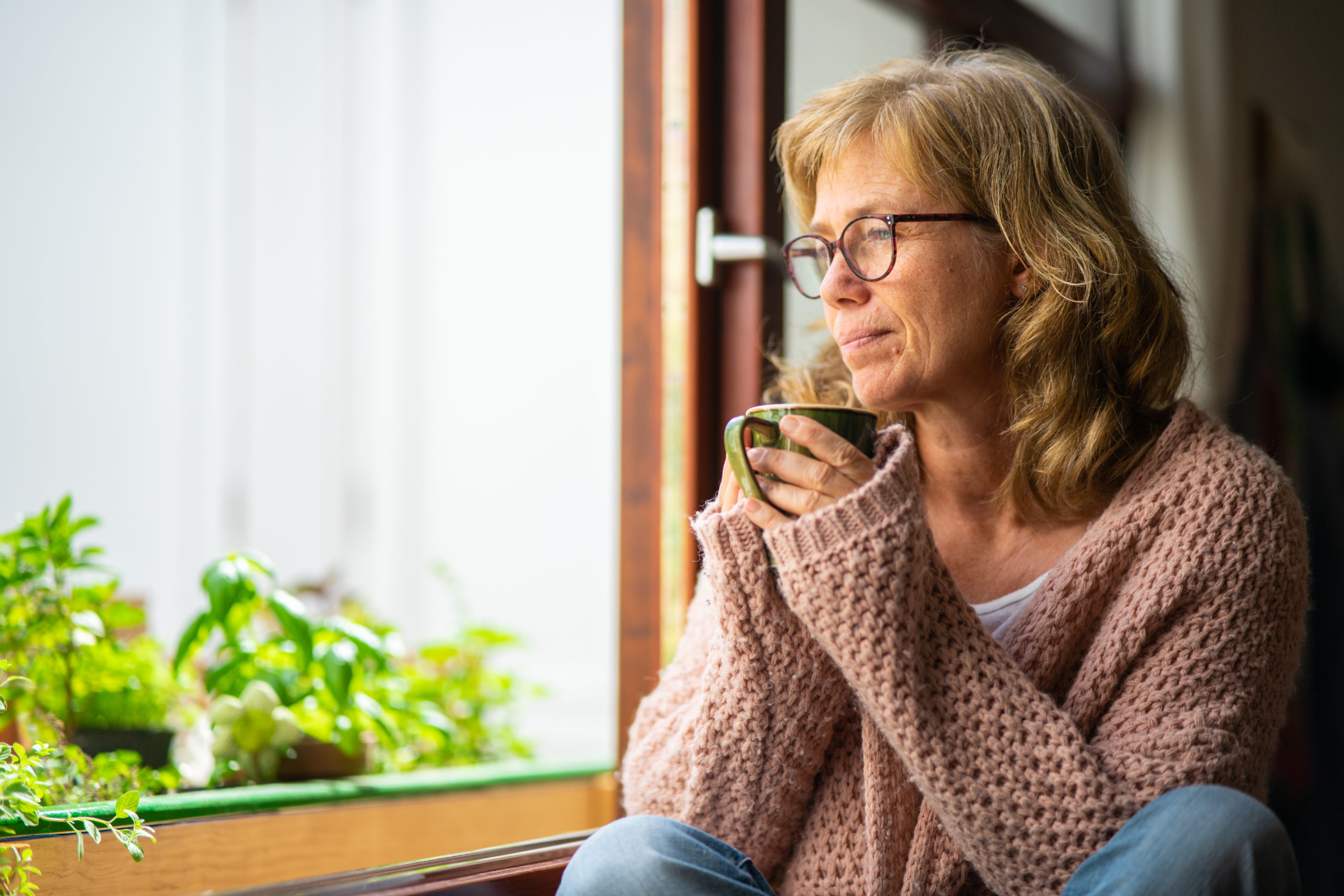
Loneliness is more common in older adults, but here’s how to feel more connected.
Loneliness is the feeling of being alone, regardless of how much social contact you have. Being socially isolated—not having much contact with other people—can lead to loneliness. But some people can feel lonely without being socially isolated.
Older adults are at an increased risk for social isolation and loneliness because they are more likely to face factors such as living alone, the loss of family or friends, chronic illness and hearing loss. This can put their health at risk in numerous ways.
Recent studies show:
-
- The health risk associated with loneliness may be even greater than the risks associated with other factors that receive a lot of public health attention, such as smoking, obesity and physical inactivity.
- Social isolation is associated with about a 50% increased risk of dementia.
- Poor social relationships may increase heart disease risk by 29% and stroke risk by 32%.
- Loneliness is associated with higher rates of depression, anxiety and suicide.
How can you confront or overcome loneliness?
If you find yourself feeling lonely, remember the acronym EASE as a way to feel less lonely:
E – Extend Yourself. Combat feelings of loneliness by volunteering. Research shows people who spend time serving and supporting others experience significant physical and mental health benefits. Starting small can make a big impact—just two hours a week can have a positive effect. Volunteer at a shelter, tutor children or help out with a local sports team.
A – Action Plan. Realizing we can change our situation by changing our thoughts and behaviors can have a surprisingly empowering effect. Take action to stay connected with friends and loved ones. If you can’t make connections face to face, stay in touch through virtual visits, social media or other forms of communication.
S – Selection. The quality of your relationships is more important than the quantity. Select people and activities that make you comfortable and happy. For example, if you are quiet, spend time with someone who is okay with silent companionship. Choose activities that offer the chance to bond with like-minded people, such as classes that exercise your body or brain.
E – Expect the Best. Warmth and goodwill from you will likely elicit warmth and goodwill from others. If you give your best to others, you will likely start seeing the best from them in return. To keep your social connections strong, nurture existing relationships and hobbies while seeking out new activities and ways to connect.
Copyright 2022 © Baldwin Publishing, Inc. All rights reserved.
Health eCooking® is a registered trademark of Baldwin Publishing, Inc. Cook eKitchen™ is a designated trademark of Baldwin Publishing, Inc. Any duplication or distribution of the information contained herein without the express approval of Baldwin Publishing, Inc. is strictly prohibited.
Date Last Reviewed: July 15, 2022
Editorial Review: Andrea Cohen, Editorial Director, Baldwin Publishing, Inc. Contact Editor
Medical Review: Perry Pitkow, MD
Learn more about Baldwin Publishing Inc. editorial policy, privacy policy, ADA compliance and sponsorship policy.
No information provided by Baldwin Publishing, Inc. in any article is a substitute for medical advice or treatment for any medical condition. Baldwin Publishing, Inc. strongly suggests that you use this information in consultation with your doctor or other health professional. Use or viewing of any Baldwin Publishing, Inc. article signifies your understanding and agreement to the disclaimer and acceptance of these terms of use.